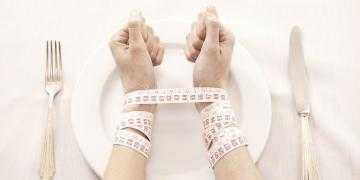Eating Disorders
Eating disorders, from binge eating to calorie counting, or feeling guilty of eating 'bad' foods can wreak havoc on our health and happiness.
The core issue lies within our emotions, and how our mind works against the goal of weight loss. Diet restrictions only work with willpower which can fade, as it usually does.
147
468 reads
CURATED FROM
IDEAS CURATED BY
The idea is part of this collection:
Learn more about health with this collection
How to choose the right music for different tasks
The benefits of listening to music while working
How music affects productivity
Related collections
Read & Learn
20x Faster
without
deepstash
with
deepstash
with
deepstash
Personalized microlearning
—
100+ Learning Journeys
—
Access to 200,000+ ideas
—
Access to the mobile app
—
Unlimited idea saving
—
—
Unlimited history
—
—
Unlimited listening to ideas
—
—
Downloading & offline access
—
—
Supercharge your mind with one idea per day
Enter your email and spend 1 minute every day to learn something new.
I agree to receive email updates
